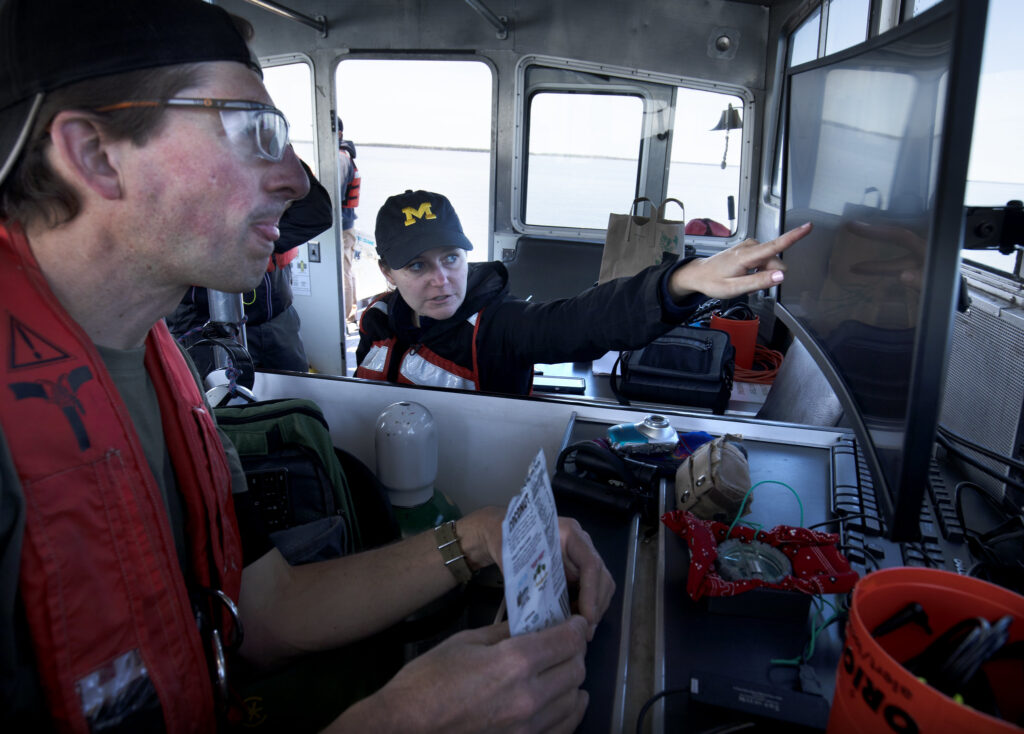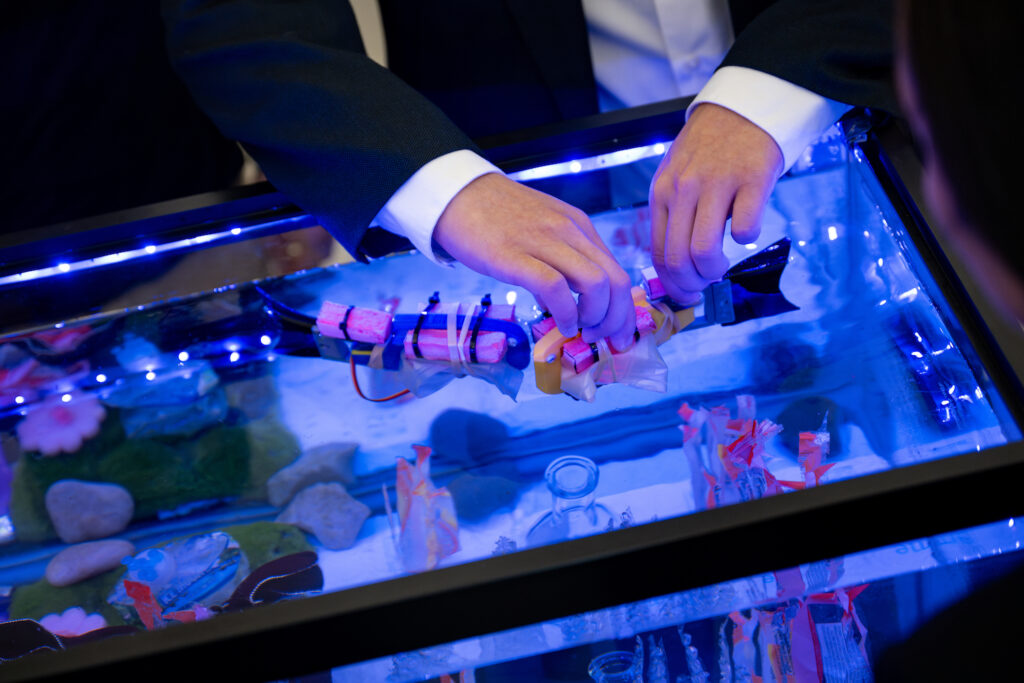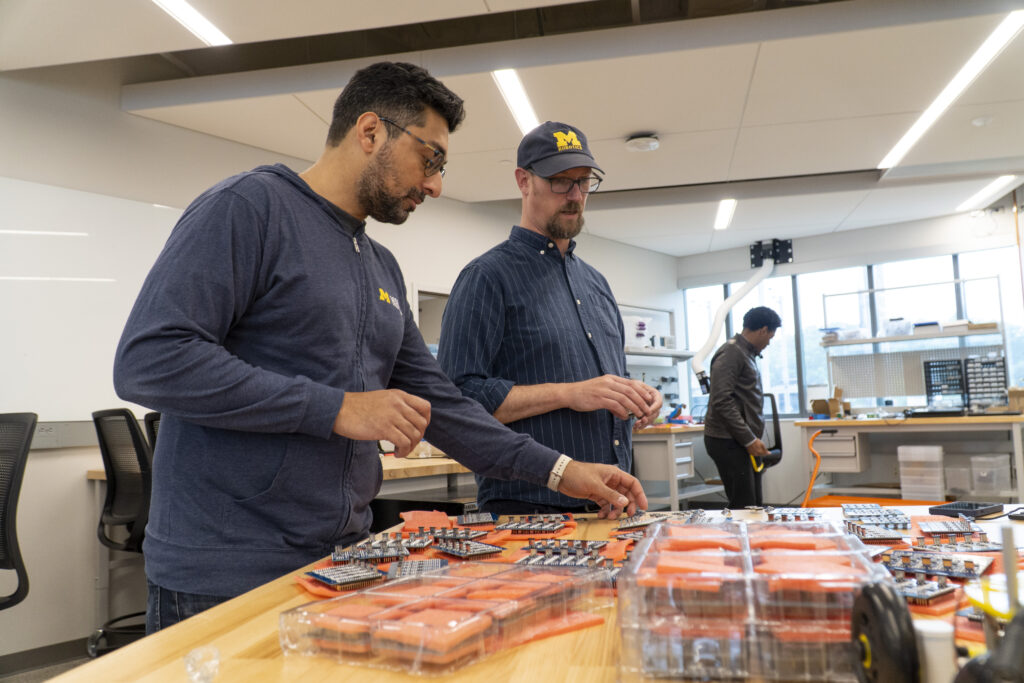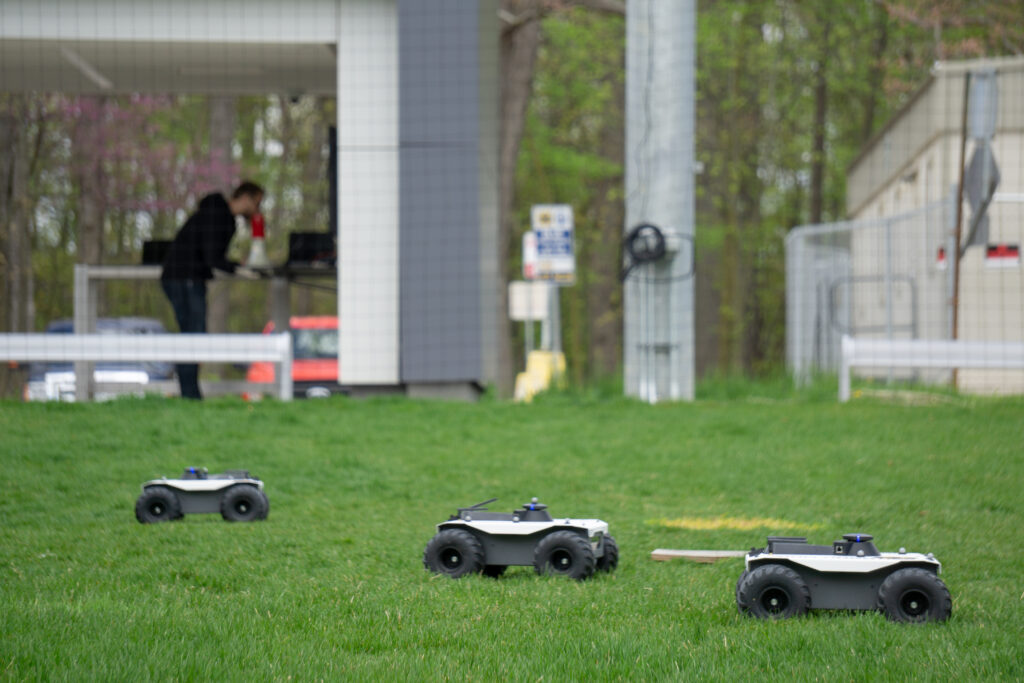Katherine Skinner awarded NSF CAREER grant
June 14, 2024

Katherine (Katie) Skinner, assistant professor of robotics, was awarded the National Science Foundation’s Faculty Early Career Development (CAREER) grant for a project titled “CAREER: Adaptive Multimodal Fusion for Robust Robot Perception in Underwater Environments”, which aims “to provide new capabilities for marine robotic systems to map, visualize, and navigate underwater sites autonomously.”
“These new capabilities will be achieved using innovative machine learning methods to simultaneously capture the robot’s surroundings and pinpoint the robot’s location by combining acoustic and visual information,” the award abstract states.
“Project outcomes will be demonstrated for use in archaeology by mapping historically significant shipwreck sites. The results will also apply to tasks such as underwater construction, infrastructure maintenance, and emergency response.”
Continue reading ⇒


